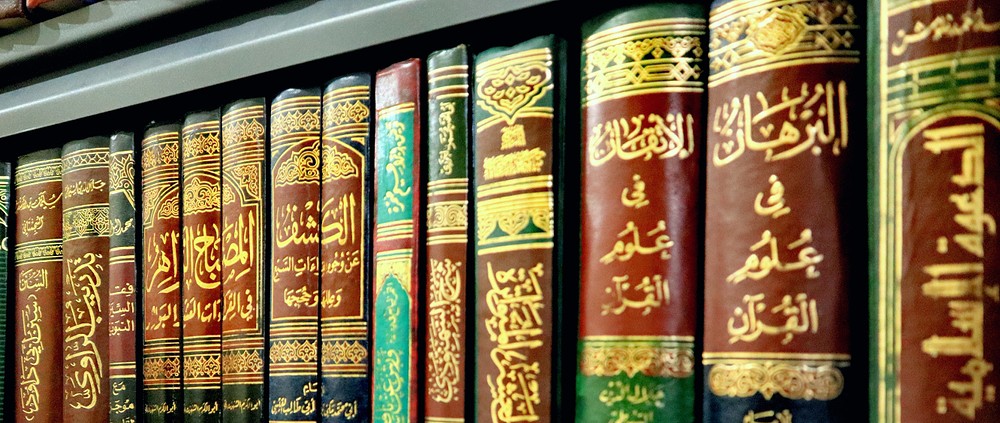Should a Specific-Reason Ruling Be Limited or General?
Answered by Shaykh Anas al-Musa
Question
If a ruling is revealed for a specific reason, does the ruling remain confined to that particular incident, or is it applicable to all similar cases?
Answer
In the name of Allah, the Most Gracious, the Most Merciful
All praise is due to Allah, Lord of all worlds, and peace and blessings be upon the Messenger sent as a mercy to the worlds, our Master and Prophet, Muhammad, and his Family and Companions.
The question relates to the revelation of the Holy Quran: Should a ruling revealed for a specific reason be confined to that reason, or is the ruling general?
When we compare the verses that were revealed for a specific reason, we find that they come in general terms, which include the incident reported to be the reason for their revelation, as well as all that falls under the generality of that term.
However, in this comparison, it’s crucial to observe two things:
First: Only Specific
If the revealed text is specific to the reason and there’s no generality in its wording, then the verse is strictly limited to what it was revealed for, as in the words of Allah (Most High):
“But the righteous will be spared from it—who donate (some of) their wealth only to purify themselves.” [Quran, 92:17-18]
This verse was revealed unanimously regarding Abu Bakr al-Siddiq (Allah be pleased with him); therefore, Imam Fakhr al-Din al-Razi used it along with the words of Allah (Most High): “Surely the most noble of you in the sight of Allah is the most righteous among you. Allah is truly All-Knowing, All-Aware.” [Quran 49:13], to argue that our master Abu Bakr al-Siddiq is the best of people after the Messenger of Allah (Allah bless him and give him peace).
Second: Specific to General
If the reason is specific but the wording of the verse is general, covering everything that falls under its generality, it is not permissible to limit the ruling to the reason for which the verse was revealed. If Allah (Most High) intended to limit the ruling to the incident for which it was revealed, He would not have revealed it in a general form.
The intention is for the text to serve as a general law applicable to all cases similar to the story for which the verse was revealed. Therefore, scholars have mentioned an important principle: “The consideration is by the generality of the wording, not by the specificity of the reason.”
An example of this is: “A man came to the Prophet (Allah bless him and give him peace) and said, ‘O Messenger of Allah, I met a woman in the garden, and I embraced her, touched her, and kissed her, doing everything but intercourse.’ The Prophet (Allah bless him and give him peace) remained silent until this verse was revealed: ‘Establish prayer (O Prophet) at both ends of the day and in the early part of the night. Surely good deeds wipe out evil deeds. That is a reminder for the mindful.’ [Quran, 11:114].
Then, the Prophet (Allah bless him and give him peace) called him and recited it to him. ‘Umar asked, ‘O Messenger of Allah, is this for him specifically, or for all people?’ He said, ‘Rather, it is for all people.’” [Muslim; Ahmad]
Finally, the principle “The consideration is by the generality of the wording, not by the specificity of the reason” is intuitive and is the basis upon which laws are established in all countries of the world; typically, a law is issued for specific reasons, but its ruling applies to everyone.
Allah’s blessings be upon our Master and Prophet, Muhammad, and his Family and Companions.
And Allah (Most High) knows best.
[Shaykh] Anas al-Musa
Shaykh Anas al-Musa, born in Hama, Syria, in 1974, is an erudite scholar of notable repute. He graduated from the Engineering Institute in Damascus, where he specialized in General Construction, and Al-Azhar University, Faculty of Usul al-Din, where he specialized in Hadith.
He studied under prominent scholars in Damascus, including Shaykh Abdul Rahman al-Shaghouri and Shaykh Adib al-Kallas, among others. Shaykh Anas has memorized the Quran and is proficient in the ten Mutawatir recitations, having studied under Shaykh Bakri al-Tarabishi and Shaykh Mowfaq ‘Ayun. He also graduated from the Iraqi Hadith School.
He has taught numerous Islamic subjects at Shari‘a institutes in Syria and Turkey. Shaykh Anas has served as an Imam and preacher for over 15 years and is a teacher of the Quran in its various readings and narrations.
Currently, he works as a teacher at SeekersGuidance and is responsible for academic guidance there. He has completed his Master’s degree in Hadith and is now pursuing his Ph.D. in the same field. Shaykh Anas al-Musa is married and resides in Istanbul.
